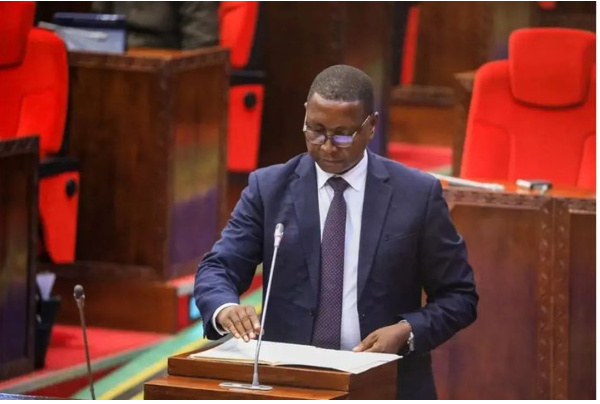
DODOMA, Nov 4 (NNN-AGENCIES) — The Tanzanian government has announced that it will begin implementing the new Education and Training Policy, 2023 edition, in January 2024.
The policy, which has been in the making for nearly four years, is expected to transform the country’s education sector.
In a response to a question posed by Special Seats Member of Parliament Rose Tweve, the Minister for Education, Science, and Technology, Prof Adolf Mkenda, said that the new curriculum will be implemented gradually, starting in January 2024 and concluding in 2027.
The improved policy, which was developed after extensive consultations with stakeholders, emphasizes 21st-century skills such as communication, collaboration, creativity, and critical thinking.
It also aims to harmonize higher education with the country’s priorities and labor market demands.
Prime Minister Kassim Majaliwa outlined the key changes to the education system in his address to Parliament on Thursday.
One of the most significant changes is the extension of compulsory education from seven to ten years.
Majaliwa explained that the current system focuses too much on general education at the expense of tailored, practical education that aligns with evolving job market needs.
The new policy places a stronger emphasis on practical education, including technical and vocational training, starting with Form One.
Teacher education will now be offered to graduates who have completed Form Six and beyond, with one-year training under supervision.
The policy also aims to revamp the testing and evaluation system, focusing on the skills needed at each level and ensuring continuous assessment and a variety of testing methods to gauge students’ progress in learning.
As the country prepares for this educational transformation, experts are advocating for a strategic, well-funded approach to ensure the successful execution of the policy.
“Adequate resource allocation, ongoing communication with the public, and collaborative efforts between various institutions and stakeholders are deemed crucial to realizing the policy’s objectives,” said education analyst Dr Thomas Jabir.
Dr. Amos Mbaruk, an education expert from the University of Dodoma, commended the government’s efforts and highlighted the importance of collaboration from all relevant ministries and stakeholders.
“It is a big step that needs patience. Now we need funds, human resources, and public education to facilitate the success of this policy,” he said.
However, he also emphasized the importance of implementing all aspects of the policy effectively, as previous policies have suffered from incomplete implementation despite their potential.
“This implementation should go step by step so that we don’t go back to where we came from. This is an opportunity for other stakeholders and the private sector to contribute to the course to make our education more productive,” he advised.
The new Education and Training Policy, 2023 edition, marks a significant departure from the existing system and is expected to transform the country’s education sector.
The government is committed to implementing the policy effectively and has called on all stakeholders to collaborate in making this vision a reality. — NNN-AGENCIES






